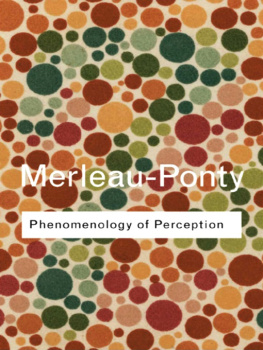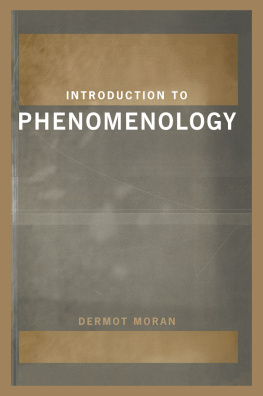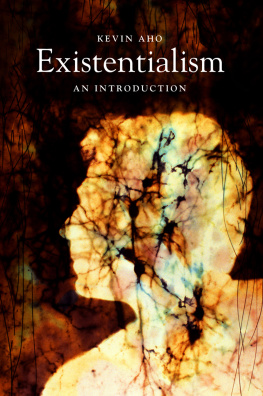
PHILOSOPHICAL
WRITINGS
THE BEAUVOIR SERIES
Edited by Margaret A. Simons and
Sylvie Le Bon de Beauvoir
Editorial Board
Kristana Arp
Debra Bergoffen
Anne Deing Cordero
Elizabeth Fallaize
Eleanore Holveck

A list of books
in the series appears at
the end of this book.
Simone de Beauvoir

PHILOSOPHICAL
WRITINGS
Edited by Margaret A. Simons
with Marybeth Timmermann and Mary Beth Mader
Foreword by Sylvie Le Bon de Beauvoir

2004 by the Board of Trustees
of the University of Illinois
All rights reserved
Manufactured in the United States of America
 This book is printed on acid-free paper.
This book is printed on acid-free paper.
c 6 5 4 3 2
Analysis of Claude Bernards Introduction to the Study of Experimental Medicine Sylvie Le Bon de Beauvoir
Two Unpublished Chapters from She Came to Stay ditions Gallimard, 1979
Pyrrhus and Cineas ditions Gallimard, 1944
A Review of The Phenomenology of Perception by Maurice Merleau-Ponty Sylvie Le Bon de Beauvoir
Moral Idealism and Political Realism Sylvie Le Bon de Beauvoir
Existentialism and Popular Wisdom Sylvie Le Bon de Beauvoir
Jean-Paul Sartre ditions Gallimard, 1979
An Eye for an Eye Sylvie Le Bon de Beauvoir
Literature and Metaphysics Sylvie Le Bon de Beauvoir
Introduction to an Ethics of Ambiguity ditions Gallimard, 1979
An Existentialist Looks at Americans ditions Gallimard, 1979
What Is Existentialism? Sylvie Le Bon de Beauvoir
Library of Congress Cataloging-in-Publication Data
Beauvoir, Simone de, 1908
Philosophical writings / Simone de Beauvoir ; edited by
Margaret A. Simons with the assistance of Marybeth Timmermann and Mary Beth Mader.
p. cm. (Beauvoir series)
Includes bibliographical references and index.
ISBN 0-252-02982-8 (cloth : alk. paper)/ISBN 978-0-252-02982-0
1. Beauvoir, Simone de, 1908Philosophy. I. Simons, Margaret A. II.
Timmermann, Marybeth. III. Mader, Mary Beth. IV. Title.
PQ2603.E362A6 2004
844.914dc22 2004011785
The editors gratefully acknowledge the support of a grant from the National Endowment for the Humanities, an independent federal agency, and a Matching Funds grant from the Illinois Board of Higher Education. This volume also received a translation grant from the French Ministry of Culture.
IN MEMORY OF KATE FULLBROOK
Contents
Sylvie Le Bon de Beauvoir
Foreword to the Beauvoir Series
Sylvie Le Bon de Beauvoir
TRANSLATED BY MARYBETH TIMMERMANN
It is my pleasure to honor the monumental work of research and publication that the Beauvoir Series represents, which was undertaken and brought to fruition by Margaret A. Simons and her team. These volumes of Simone de Beauvoirs writings, concerning literature as well as philosophy and feminism, stretch from 1926 to 1979, that is to say, throughout almost her entire life. Some of them have been published before and are known, but they remain dispersed throughout time and space, in diverse editions, newspapers, or reviews. Others were read by Beauvoir during conferences or radio programs and then lost from view. Some had been left completely unpublished. What gives all of them force and meaning is precisely having them gathered together, closely, as a whole. Nothing of the sort has yet been realized, except, on a much smaller scale, Les crits de Simone de Beauvoir (The Writings of Simone de Beauvoir), published in France in 1979. Here, the aim is an exhaustive corpus, as much as that is possible.
Because they cover more than fifty years, these volumes faithfully reflect the thoughts of their author, the early manifestation and permanence of certain of her preoccupations as a writer and philosopher, as a woman and feminist. What will be immediately striking, I think, is their extraordinary coherence. Obviously, from this point of view, Les cahiers de jeunesse (The Student Diaries), previously unpublished, constitute the star document. The very young eighteen-, nineteen-, or twenty-year-old Simone de Beauvoir who writes them is clearly already the future great Simone de Beavoir, author of Linvite (She Came to Stay), Pour une morale de lambigut (The Ethics of Ambiguity), Le deuxime sexe (The Second Sex), Les Mandarins (The Mandarins), and Mmoires (Memoirs). Her vocation as a writer is energetically affirmed in these diaries, but one also discovers in them the roots of her later reflections. It is particularly touching to see the birth, often with hesitations, doubt, and anguish, of the fundamental choices of thought and existence that would have such an impact on so many future readers, women and men. Beauvoir expresses torments, doubt, and anguish, but also exultation and confidence in her strength and in the future. The foresight of certain passages is impressive. Take the one from June 25, 1929, for example: Strange certitude that these riches will be welcomed, that some words will be said and heard, that this life will be a fountainhead from which many others will draw. Certitude of a vocation.
These precious Cahiers will cut short the unproductive and recurrent debate about the influence that Sartre supposedly had on Simone de Beauvoir, since they incontestably reveal to us Simone de Beauvoir before Sartre. Thus, the relationship of Beauvoir and Sartre will take on its true sense, and one will understand to what point Beauvoir was even more herself when she agreed with some of Sartres themes, because all those lonely years of apprenticeship and training were leading her to a definite path and not just any path. Therefore, it is not a matter of influence but an encounter in the strong sense of the term. Beauvoir and Sartre recognized themselves in one another because each already existed independently and intensely. One can all the better discern the originality of Simone de Beauvoir in her ethical preoccupations, her own conception of concrete freedom, and her dramatic consciousness of the essential role of the Other, for example, because they are prefigured in the feverish meditations that occupied her youth. Les cahiers constitute a priceless testimony.
I will conclude by thanking Margaret A. Simons and her associates again for their magnificent series, which will constitute an irreplaceable contribution to the study and the true understanding of the thoughts and works of Simone de Beauvoir.
Acknowledgments
Simone de Beauvoirs Philosophical Writings is dedicated to Kate Fullbrook, whose discoveries with Edward Fullbrook inspired the Beauvoir Series project. This volume would not have been possible without the generous support of a Collaborative Research Grant from the National Endowment for the Humanities (NEH), an independent federal agency; a Matching Funds grant from the Illinois Board of Higher Education allocated by the Graduate School of Southern Illinois University Edwardsville (SIUE); and a translation grant from the French Ministry of Culture. I am very grateful to the following persons for their encouragement and assistance: Margot Backas and Michael Hall, of NEH; Anne Solange Noble and Florence Giry, of ditions Gallimard; Joan Catapano, editor in chief of the University of Illinois Press; and Dean Steve Hansen, Provost Sharon Hahs, Dean Kent Neely, David Steinberg, Tom Paxson, and Bill Hamrick, all of SIUE. This volume and the Beauvoir Series project as a whole have benefited from the guidance of the members of the Beauvoir Series Editorial Board: Kristana Arp, Debra Bergoffen, Anne Deing Cordero, Elizabeth Fallaize, and Eleanore Holveck. For their assistance in identifying quotations, I thank Bill Hamrick, Carol Keene, Henry W. Pickford, Matthew Schmitz, Carl Springer, Julie Ward, and Edwin Lawrence. The many transcribers, translators, and authors of introductions, listed with the individual texts, have taught me so much about Beauvoirs philosophy, and I am grateful to them. I would like to give special thanks to Jo Barnes and Janette Johnson for their assistance with administering the grants; Bessie Richards and Hope Myers for tracking down Beauvoirs elusive texts; Marybeth Timmermann and Mary Beth Mader for their help in editing the translations; and my coeditor of the Beauvoir Series, Sylvie Le Bon de Beauvoir, for her warm encouragement and steadfast support.
Next page





















 This book is printed on acid-free paper.
This book is printed on acid-free paper.